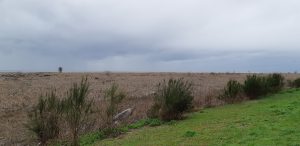“Quiet is a fast depleting resource.”
Introverts need access to quiet spaces to maintain our health and well-being. A fact we have been sounding the alarm about for years. Now it seems that other groups are also concerned about the increased levels of noise in our cities and perhaps more alarmingly, in our parks.
Where do you go when you need to get away from the maddening crowds? I find that a walk in nature is a perfect way to decompress, and I am fortunate to live close to a large rural park. Even then I have to pick a time when I know the park won’t be too crowded.
I recently listened to a CBC interview with Canadian Jonathon Kawchuk, sound composer and volunteer with Quiet Parks International. Jonathon caught my attention when he said,
“quiet solitude is a diminishing commodity.”
As an introvert I find this fact alarming. Not only do I enjoy being outside in nature but my well-being suffers if I can’t find ways to decompress and recharge my batteries.
I believe that everyone suffers to some degree if they are constantly bombarded by noise. Without sufficient time alone introverts may find themselves feeling irritated, unable to concentrate, anxious or depressed.
Dark Skies and Quiet Spaces
Despite the fact that many of us go to parks in order to get away from the noise and bustle of urban living recent studies by the United States Park Service found that
“more than 60% of protected areas are exposed to noise that masks the natural sounds that would otherwise be heard.”
Natural sounds such as birds singing, frogs chirping, insects buzzing, and rivers flowing are masked by the sounds of people talking loudly on their phones, recreational vehicles such as snow mobiles and off road motor bikes revving up their engines, music playing loud enough to be heard on the moon and planes flying constantly overhead. Did you know that no single part of the Grand Canyon is free from aircraft noise?
Some of the more popular parks in Canada and the United States see millions of visitors a year. The vast majority of them arrive by car or other private vehicle.
Parks Canada recently made the unpopular decision to restrict vehicle access to Moraine Lake in Banff National Park. The decision was made in order to reduce stress on the wildlife and also decrease carbon emissions.
Think Global, Act Local
I was curious as to what was happening in my corner of the world and was pleased to learn about the Right to Quiet Society.
“The Right to Quiet Society for Soundscape Awareness and Protection was founded in Vancouver, British Columbia in 1982 with the mission of raising public awareness of the detrimental effects of noise on health; promoting awareness of noise pollution and the dangers of noise to our physical, emotional, and spiritual wellbeing.”
The group’s mission includes “fostering recognition of the right to quiet as a basic human right.”
Since its beginning in 1982 the organization has been instrumental in helping make Vancouver a quieter city and has been working with the Vancouver Parks Board. You can find their list of accomplishments on the website.
What comes to mind when you think of parks? For me its green spaces, nature and quiet but if we don’t act soon our quiet green spaces will be gone. What can you do to help maintain quiet parks in your corner of the world?
[contact-form][contact-field label=”Name” type=”name” required=”true” /][contact-field label=”Email” type=”email” required=”true” /][contact-field label=”Website” type=”url” /][contact-field label=”Message” type=”textarea” /][/contact-form]

